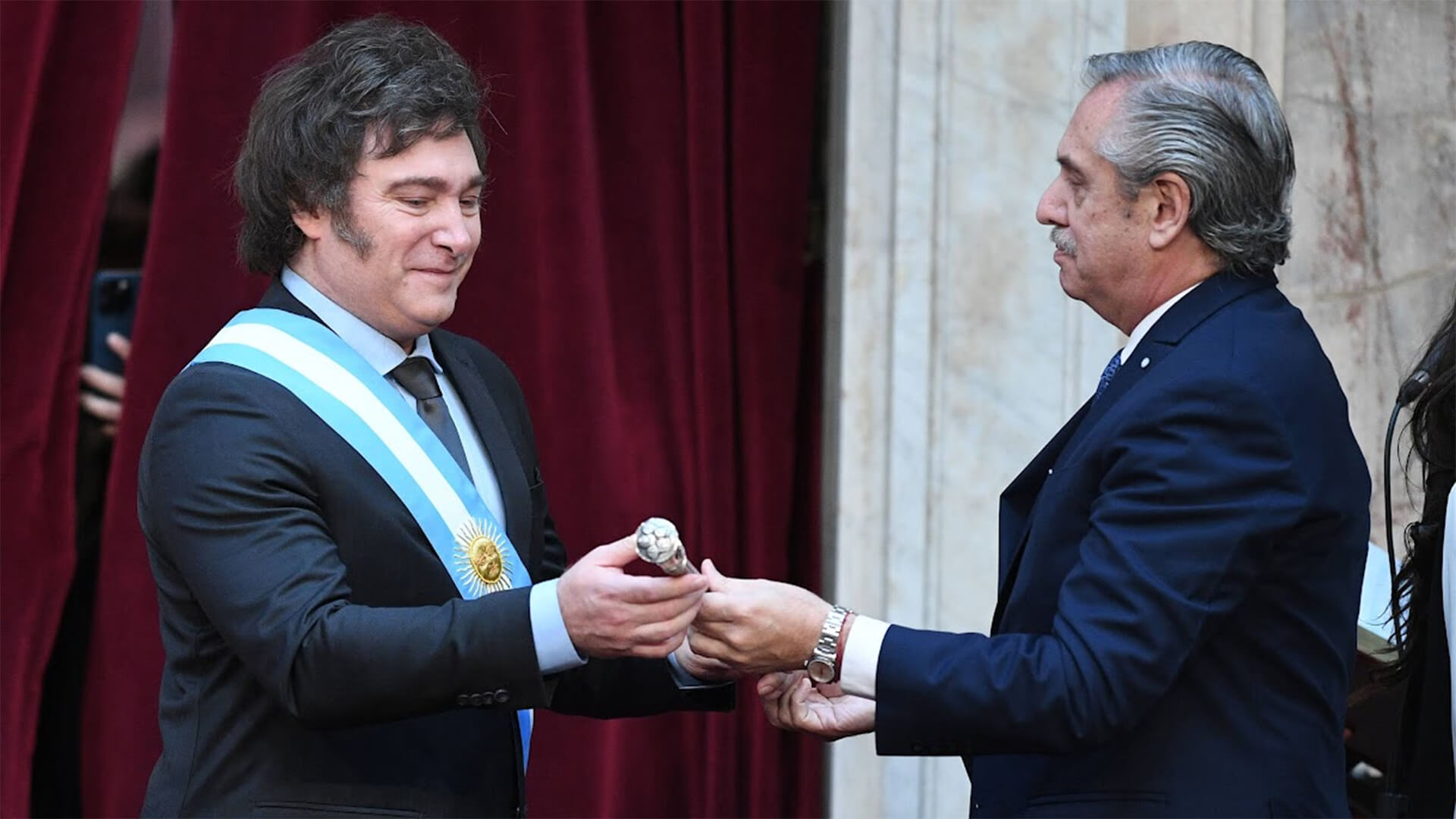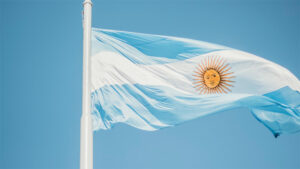Javier Milei, Argentina’s President, has been leading the country for a year now. So, let’s review what he has been able to accomplish in that time.
Milei is looking to overhaul the country’s economy after decades of mismanagement under Peronism. He’s tackled inflation, but eliminating Argentina’s dominant socio-political-economic system has increased poverty. Economic recovery and wealth generation take time, so we’ll continue to watch how this evolves.
Argentina has all the natural resources and geography to be successful, but years of Peronism and the recent drought have made a recovery difficult. Foreign investors are showing optimism, but true progress will only come once Argentina can begin to generate its own capital. Argentina has strong bones, but adding meat to those bones is going to be a long process.
Here at Zeihan on Geopolitics, our chosen charity partner is MedShare. They provide emergency medical services to communities in need, with a very heavy emphasis on locations facing acute crises. Medshare operates right in the thick of it, so we can be sure that every cent of our donation is not simply going directly to where help is needed most, but our donations serve as a force multiplier for a system already in existence.
For those who would like to donate directly to MedShare or to learn more about their efforts, you can click this link.
Transcript
Hey everybody. Good morning, Peter Zeihan here, coming to you from near the head of Matthew Key to Key West, Mateu key to Key Valley and Mount Aspiring National Park. We’re going to pan around a lot on this one. It’s going to take a quest. Oh, yeah. New Zealand obviously. Going to take a question from the Patreon page that I’ve been getting a lot and it’s what do I think of the president of Argentina, Melaye, who has been going through a series of reforms.
It’s been a year now since he took over. And when I said it a year ago, he’s like, he’s got a lot of work ahead of him and we’re not going to see results soon that people are looking for an update. And the update is he’s got a lot of work in front of him, and we’re not going to see results soon.
Let’s talk about the good things that have happened that are his, that he should get credit for, and the good things are about to happen, then he probably shouldn’t. And then we’ll go into the other stuff. So first things first. Last year was really bad for growth in Argentina, Argentina because of its old government system. Peronism, has a horrible economy and it shouldn’t.
The Argentine system has naturally having waterways overlaying great arable land. In fact, the second largest chunk of those two things combined in the world after North America. It should be a superpower. And at the turn of the previous century, actually at the end of World War one, it was the fourth richest economy in the world. And now it’s back then it was maybe 90% of the wealth of the United States, per capita.
Now it’s less than 30%. The reason is we had this guy come in in the late 40s and ruling until about 55 by the name of Peron, who formed a new type of political, economic ideology that combines the worst aspects of fascism and socialism, where the government owns all kinds of things and runs them badly and into the ground.
And whoever gets political power can basically do whatever they want. But they also control the labor unions, and all the, the export system. And there’s a lot of other messy things going on. It’s, it’s kind of a nonsensical ideology, but it is the dominant ideology of Argentina, and it has systematically destroyed the ability of the country to generate capital and wealth.
Instead they do oversimplification here. They concentrate power in the hands of a few people within the political class and then print a lot of currency to artificially increase demand for their supporters. So everyone feels rich, which only generates hyperinflation. So Melaye came in and tried to rip all of this up from the roots, and considering he didn’t have majority in Congress, that was kind of a heavy carry.
But he did a pretty good job and that artificial demand is now gone. And so inflation has gotten back down to more normal levels. And he absolutely deserves all the credit for that. The other side of that, unfortunately, is that when most of the country, at least half of it is thriving on that sort of system where the government throws money into the system to generate that artificial demand, and then the money goes away, the demand goes away that, yes, that takes care of inflation, but it puts a lot of people into poverty.
So when it comes to things like poverty, amelioration and generating the sort of economic activity at home that is necessary to then use a more capitalist structure to bring wealth back. And that takes a lot more than a year. And we’re only in the very early stages of it. Second, things are going to get better for Argentina this year, independent of malaise reforms.
Last year there was a drought. Argentina is primarily. That’s a key, right there. It’s, Argentina is primarily a commodities producer, especially soy. And there were droughts last year. So we saw a significant contraction in the primary extraction economy. It looks like the weather forecast coming up for the next year looking to be positive. So simply a return to the median for agricultural production is going to generate pretty strong growth.
But what we really need to see is capital start getting generated at home. Now, foreign investors are starting to express more optimism in what Malaya is doing, and they’re starting to buy up Argentinian government bonds again. But we’ve been in this cycle before where you get a reformist government that tries to fix a few things, make some progress foreign to start to come back in and you get another Peronist government that comes in and wrecks it all again.
A little word of caution. Until such time as Argentina is generating its own capital and until such time as Millais or someone like him can actually win more than one term in a row, it’s really hard to say that Argentina has emerged from its funk. If it can pull that off, it’s going to be doing very, very well because the bones are very good.
And I would just put a little bit of caution in there for anyone who’s trying to compare Argentinian politics to anywhere else. For example, there’s a lot of people in the United States, who are in the Trump field who look at Millais and how he’s kind of taking the ax to the government and they say, oh, yeah, we should do that.
Keep in mind that most of what Donald Trump says he wants to do actually has more in common with Peron when it comes to centralization of control, especially when it comes to things like labor, than it does with Millais, who is more of a libertarian. So, you know, there are lessons here. We should study it, but we shouldn’t get crazy with what sort of parallels we try to draw.
Oh, and one more thing, because I know people are going to ask. Careful. The parallels you draw between what’s going on in Argentina now and really anywhere else, especially the United States. The U.S. and Argentina may have similar geographies, but their political systems diverged a long time ago. So, for example, there are folks in the Trump campaign who are looking at L.A. and him taking an ax to the state as something that they would like to do in the United States.
But there is no stomach for that in Donald Trump at all, because that would mean going after the single largest budget items. And those are entitlements Medicare, Medicaid, Social Security, and maybe, maybe even defense. If you don’t take an ax to those four things, you’re not going to make any meaningful progress. In fact, under Donald Trump, we went the opposite direction.
When he was president, we had the largest budget deficits in American history in peacetime, a feat that was admittedly, topped under, Joe Biden. But if Trump does what he says he’s going to do, and he’s going to reclaim that mantle in the very near future, so think of, when it comes to the centralization of power, that’s really what Cronin is about.
And that is something that both Biden and Trump exercised. I would argue that they are the two most Peronist presidents. The United States has ever had. And, Argentina is led not by a conservative. It’s led by a libertarian. O’Malley would not fit in with the American Republican Party of today or yesterday at all. The two countries are moving in different directions, with Argentina moving away from Peru, Amazon and the United States moving towards it.








